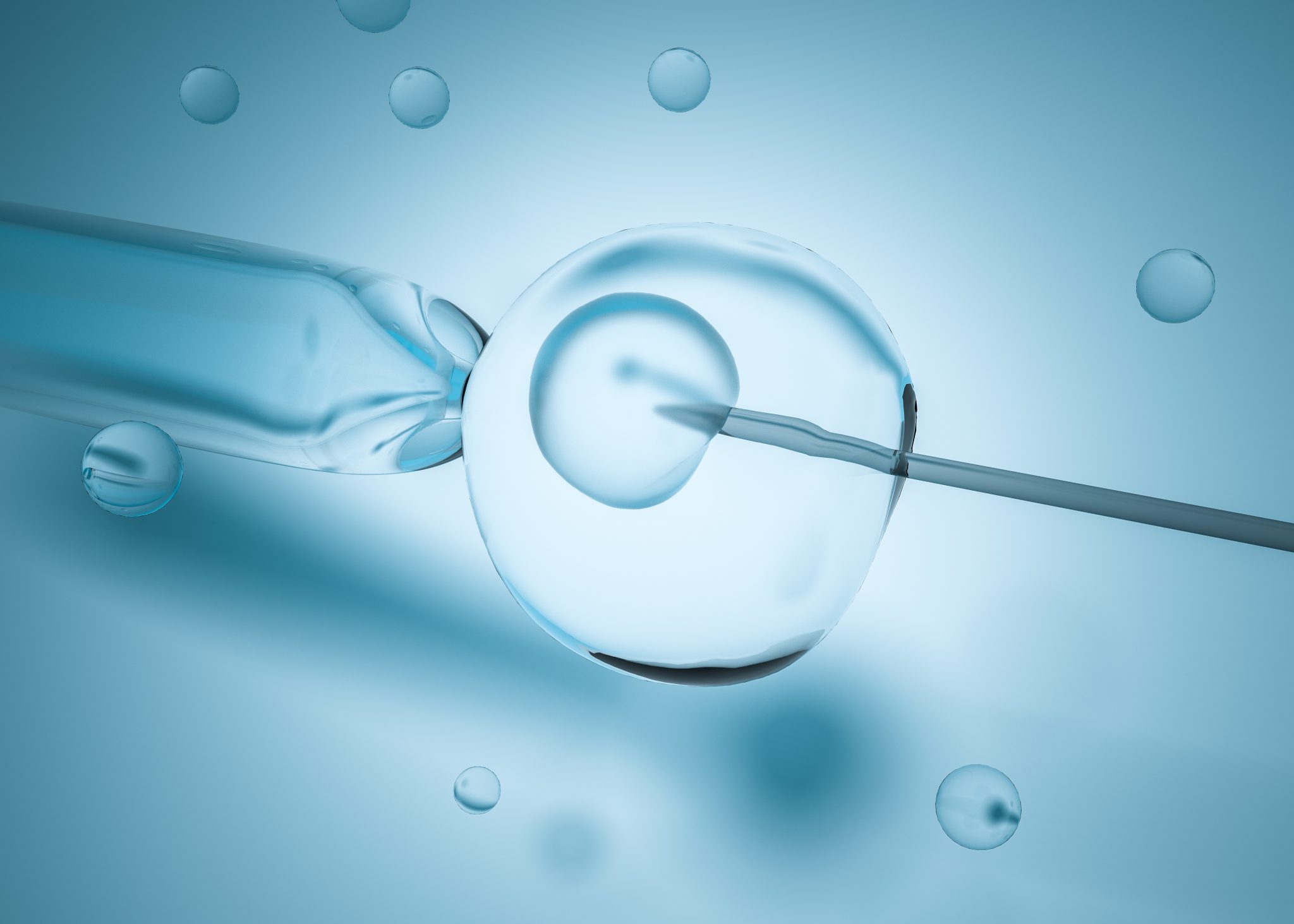
A comprehensive guide on how to Choose the Right Genetic Tests during a Woman’s In Vitro Fertilization (IVF) journey.
Is Genetic Testing Necessary for me? For women who want to seek In Vitro Fertilization, this is a question they ask themselves thousands of times. This article provides a comprehensive guide on how to Choose the Right Genetic Tests during a Woman’s In Vitro Fertilization (IVF) journey.
What is IVF?
In vitro fertilization (IVF) is a medical procedure that can aid in the conception of a child. Louise Brown was the first IVF baby born in 1978. IVF is continually evolving as new medical discoveries are made, and it has gotten safer and more successful over the previous 40 years.
Most women have 20-35 percent success rates per cycle, but the chances of becoming pregnant diminish with each subsequent round while the expense rises. Three full rounds of IVF improve the odds of a successful pregnancy to 45-53 percent. It’s natural to be nervous and even afraid while beginning IVF procedures. Understanding the IVF procedure might make you feel more at ease and confident as you proceed.
Your doctor may be able to answer your questions, but they cannot predict the potential disease you, your partner, or your sperm/egg donors may carry. You will need to make your own decisions about what type of genetic testing you want to get. A lot of the time the genetic screening or genetic testing is provided by third-party labs, your fertility clinic and the genetic testing labs don’t necessarily seamlessly collaborate. You will need to manage your timeline about what test is needed when to place the test, when to schedule the genetic counselor session and when to review the results with your doctor.
Table of Contents
EUPLOID EMBRYOS
Embryologists seek euploid embryos with 46 chromosomes in 23 pairs and are chromosomally normal. Their objective is to transplant one euploid embryo with the highest chance of developing into a healthy child.
ANEUPLOID EMBRYOS
Aneuploid embryos, which lack the proper number of chromosomes, are more likely to result in miscarriages, birth abnormalities, and IVF failure. One or more chromosomes may be duplicated or absent. The presence of an additional chromosome is what defines trisomy. Monosomy refers to the absence of a chromosome. Aneuploid embryos or aneuploidy are seen in Down Syndrome (Trisomy 21) and Turner Syndrome (where an x chromosome is absent.)
What genetic diseases carry high reproductive risks?
Certain genetic abnormalities can impact fertility or be addressed with an in vitro fertilization procedure (IVF). There are two types of genetic abnormalities: single gene defects and chromosomal abnormalities.
A single gene deficiency is caused by a mutation or aberration in the DNA that codes for that gene. Single gene mutations can cause a variety of health issues, including infertility.
IVF raises the possibility of twins, triplets, or high-order multiples, as well as preterm delivery, high blood pressure, placental anomalies, and other complications. In addition, maternal age (frequently the cause of IVF) raises the chance of miscarriage and birth abnormalities.
The success rate is determined by a variety of factors, including reproductive history, age, infertility reasons, and lifestyle factors. It’s also crucial to realize that pregnancy rates aren’t the same as live birth rates. The live birth rate for each IVF cycle initiated in the United States is rough:
- For women under the age of 35, the percentage ranges from 41 to 43 percent.
- For women aged 35 to 37, the percentage is between 33 and 36 percent.
- For women aged 38 to 40, the percentage is between 23 and 27 percent.
- For women over the age of 40, the percentage is between 13 and 18 percent.
Throughout IVF therapy, maintaining a healthy weight and abstaining from alcohol, smoking, and caffeine can help you have a child.
Why is it strongly recommended to do genetic screening?
Genetic testing can help you or a family member obtain better medical treatment in various situations. Genetic testing, for example, can offer a diagnosis for a genetic disorder like Fragile X syndrome or information about your cancer risk. There are several types of genetic testing.
What disease does PGT-A test for?
This form of PGT looks for specific chromosomal defects in embryos. Each cell in a human embryo should have 23 pairs of chromosomes. The egg contributes one chromosome to each pair, while the sperm contributes the other. However, random chromosomal abnormalities, such as a missing or extra chromosome, are prevalent in embryos (aneuploidy). These chromosomal abnormalities are not usually inherited from a parent or donor and occur by coincidence. Aneuploid embryos are more likely to cause miscarriage or a failed IVF cycle. Aneuploidy results in the birth of a kid with a chromosomal disorder like Down syndrome or Turner syndrome.
What disease does PGT-M test for?
This sort of PGT is used when a patient’s embryos are at a higher risk of developing a certain genetic disease. For example, when a person has a genetic disorder that might be handed down to their offspring, when a woman is a carrier for a cross ailment, or when a person and their spouse or donor are both carriers for the same autosomal recessive condition, PGT-M is acceptable.
Why can PGT-A not identify genetic deficiency?
Although the findings of PGT are quite accurate, it is still regarded as a screening test. As a result, false positives and negatives are possible. Modern PGT-A techniques can accurately detect mixtures of euploid and aneuploid cells. However, the reported prevalence of mosaic embryos categorized with PGT-A at the blastocyst stage varies between clinics. The most current estimates put the figure between 4% and 22%.
PGT-A versus PGT-M, the difference.
The purpose of PGT-A is to detect embryos with chromosomal abnormalities that may impact an embryo by chance. In addition, PGT-M aims to help prevent certain illnesses or disorders from being passed on from parent to kid.
How to manage Genetic testing during your IVF process?
Step 1: Your doctor or genetic counselor will discuss the test, what it may or may not inform you, insurance coverage, and insurance discrimination concerns with you. Depending on the lab administering the test, you may be required to sign a permission form. Next, your doctor or nurse will take a sample from you. Blood is the most common sample type; however, saliva, skin, fluid around the baby during pregnancy, and tumors can all be used. If the initial sample does not work, you may be requested to provide a second sample. Finally, the sample is delivered to the laboratory.
Step 2: A blood specimen, hair, skin, amniotic fluid (the fluid covering a fetus during pregnancy), or other tissue is used to undertake genetic testing. A buccal smear, for example, collects a sample of cells from the inner surface of the cheek with a little brush or cotton swab. Depending on the suspected disease, the sample is submitted to a lab where technicians examine for alterations in chromosomes, DNA, or proteins. The laboratory sends test findings to a doctor or health professional in writing or the patient directly if desired.
Step 3: PGT-A is a genetic test used to detect numerical chromosomal abnormalities in embryos (aneuploidy). You may examine all 24 chromosomes using Next-Generation Sequencing (NSG). Before embryo transfer, chromosomal abnormalities are discovered to prioritize embryos for transfer and boost pregnancy rates.
Step 4: PGT-M is a genetic test conducted on embryos developed by in vitro fertilization (IVF) and is intended for people who are aware that they have a higher chance of having a child with a certain genetic condition. Preimplantation genetic diagnosis, or PGD, was the previous name for PGT-M. PGT-M entails testing in vitro fertilization (IVF) embryos and subsequently transplanting unaffected embryos. Preimplantation genetic diagnosis, or PGD, was the previous name for PGT-M.
What is the best genetic testing for IVF?
Preimplantation genetic testing (PGT) is useful for various reasons, including determining a couple’s viability for having a healthy kid. In addition, it can help determine what’s causing your losses or prior failed IVF cycles. Others may be interested in learning if they are carriers of a genetic condition such as Down Syndrome or Fragile X syndrome.
Best Lab for Carrier Test and Screening Test
Myriad
Myriad develops and commercializes genetic tests to predict the onset of disease, estimate the risk of disease development, and guide treatment options across a variety of medical disciplines where key genetic insights might enhance patient care and reduce healthcare costs. Myriad has spent a significant amount of time and money educating people, and healthcare professionals about the role genes play in illness since 1991. Millions of people have already benefited from Myriad’s tests, which give individuals crucial genetic insights while also allowing healthcare practitioners to diagnose, treat, and prevent disease.
For many individuals, being a carrier can result in symptoms or may impact how their providers manage their pregnancy, whether that be through increased monitoring or performing prenatal diagnosis. Most carriers are healthy individuals and don’t have a known family history of serious inherited conditions. Myriad’s The Foresight Carrier Screen was thoughtfully designed to provide the most accurate, actionable insights to guide medical management decisions.
Pros:
- More than 25 years of expertise in the field of hereditary disease genetic analysis
- Some testing fees may be covered by insurance.
- Genetic assistance is provided.
Cons:
- The costs are higher than those of comparable genetic tests in the industry.
- There is less clarity regarding the upfront costs of testing.
- You won’t be able to upload genetic data from other sources.
Best Lab for Genetic Test (PGT-A and PGT-M)
Igenomix
Igenomix has created new tests to assist people in increasing their chances of becoming pregnant. They were evaluating embryos before the transfer makes it possible to drastically reduce the risk of having a kid with an inherited genetic condition.
Pros:
Streamline the process for PGT-M, PGT-A
The genetic counselor is comprehensive and responsive
PGT-M may only charge a one-time probe setup fee for a target genetic disease
Cons:
High rates
Waiting time can be as long as several months for a certain genetic disease
The genetic counselor works on west coast hours
References:
https://www.mayoclinic.org/tests-procedures/in-vitro-fertilization/about/pac-20384716
https://www.webmd.com/infertility-and-reproduction/guide/in-vitro-fertilization


76 thoughts on “How to Choose the Right Genetic Tests during my IVF?”